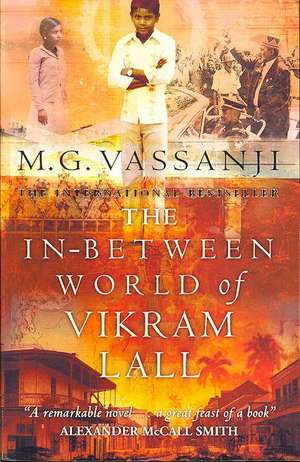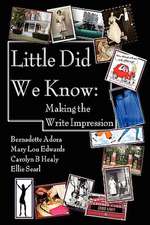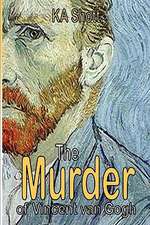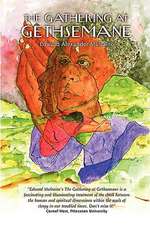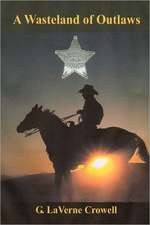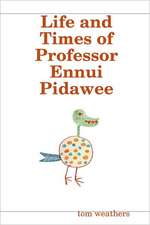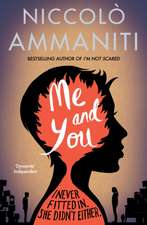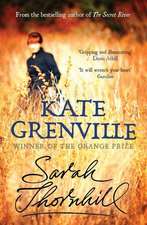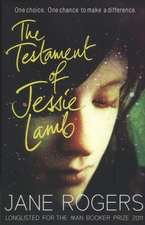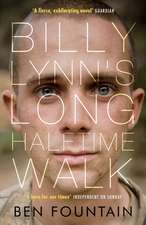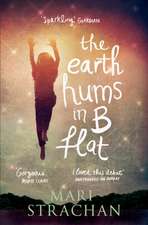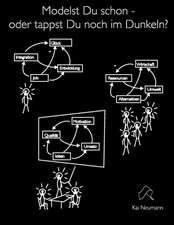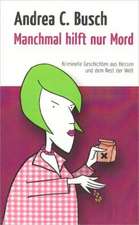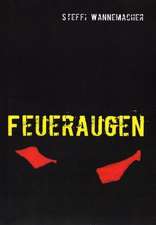The In-Between World Of Vikram Lall
Autor M. G. Vassanjien Limba Engleză Paperback – 2 iun 2005
Vikram Lall inhabits an 'in-between world': between his ancestral home in India and the Kenya he loves passionately; between his infamous African past and his uncertain future in exile. In this sweeping and sumptuous novel, M. G. Vassanji weaves a rich tapestry of vivid characters, real and imagined, in a land caught between colonialism and independence, between escape from political terror and a seemingly inevitable return to Africa, a return that may cost Vikram Lall dearly . . .
"A thwarted love story . . . utterly compelling and shot through with the intensity of lived experience." Observer
"Vassanji captures a wide and authentic perspective that ranks with V. S. Naipaul and Graham Greene." The Times
"A writer at the top of his form." Guardian
"This warm-hued, marvellously accomplished novel opens up a world that will be new and unfamiliar to many readers, and one that they will not easily forget." Scotsman
"A wholly engaging and spirited novel of Africa: warm, shrewdly charming, replete with its own wry and humane wisdom." William Boyd
| Toate formatele și edițiile | Preț | Express |
|---|---|---|
| Paperback (2) | 83.00 lei 3-5 săpt. | +13.39 lei 7-13 zile |
| Canongate Books – 2 iun 2005 | 83.00 lei 3-5 săpt. | +13.39 lei 7-13 zile |
| VINTAGE CONTEMPORARIES – 31 oct 2005 | 118.73 lei 3-5 săpt. |
Preț: 83.00 lei
Nou
Puncte Express: 125
Preț estimativ în valută:
15.88€ • 16.63$ • 13.14£
15.88€ • 16.63$ • 13.14£
Carte disponibilă
Livrare economică 15-29 martie
Livrare express 01-07 martie pentru 23.38 lei
Preluare comenzi: 021 569.72.76
Specificații
ISBN-13: 9781841956060
ISBN-10: 1841956066
Pagini: 448
Ilustrații: No
Dimensiuni: 128 x 198 x 32 mm
Greutate: 0.33 kg
Ediția:Main. Auflage
Editura: Canongate Books
Locul publicării:United Kingdom
ISBN-10: 1841956066
Pagini: 448
Ilustrații: No
Dimensiuni: 128 x 198 x 32 mm
Greutate: 0.33 kg
Ediția:Main. Auflage
Editura: Canongate Books
Locul publicării:United Kingdom
Notă biografică
M.G. Vassanji is the author of five acclaimed novels: The Gunny Sack, which won a regional Commonwealth Writers' Prize; No New Land; The Book of Secrets, which won the very first Giller Prize; Amiriika; and The In-Between World of Vikram Lall, which also received the Giller Prize. He lives in Toronto with his wife and two sons.
Descriere
'Belonging in a category with Tolstoy's War and Peace, Vassanji's saga is sweeping in scope . . . brilliant'- Janette Turner Hospital in The Globe and Mail
Recenzii
"Gorgeous and heart-rending. . . . Vassanji explores [love and loss] with all the tact of a true literary power." --Chicago Tribune“Brilliantly written and deeply felt, it is a resonant family novel that is also a brutally honest portrayal of the last half century of tumultuous Kenyan history. . . . Vassanji displays his great gifts; this beautiful novel, which unfolds with intimacy and an inexorable sense of destiny, is proof that fictional truth can illuminate an epoch in history like nothing else.”–The Boston Globe“Tautly written. . . . Admirably captures the tenor of the postcolonial period: the predicament of the Asian minority, the corruption that marred Kenya’s fledgling independence, and the individual tragedies that were the cost of the revolution.”–The New Yorker“A novel of elegant gesture, complex understanding, bright passion, and historical pain.”–O, The Oprah Magazine“Finely drawn . . . an ambitious and enthralling work.”–The Times Literary Supplement
Extras
“Who is the third who walks always beside you?” -- T.S. Eliot, The Waste Land
“Neti, neti.” (Not this, not that.) -- Brihadaranyaka Upanishad
“Po pote niendapo anifuata.” (Wherever I go he follows me.) -- Swahili riddle; answer: shadow
My name is Vikram Lall. I have the distinction of having been numbered one of Africa’s most corrupt men, a cheat of monstrous and reptilian cunning. To me has been attributed the emptying of a large part of my troubled country’s treasury in recent years. I head my country’s List of Shame. These and other descriptions actually flatter my intelligence, if not my moral sensibility. But I do not intend here to defend myself or even seek redemption through confession; I simply crave to tell my story. In this clement retreat to which I have withdrawn myself, away from the torrid current temper of my country, I find myself with all the time and seclusion I may ever need for my purpose. I have even come upon a small revelation -- and as I proceed daily to recall and reflect, and lay out on the page, it is with an increasing conviction of its truth, that if more of us told our stories to each other, where I come from, we would be a far happier and less nervous people.
I am quite an ordinary man, as you will discover, and moderate almost to a fault. How I came upon my career and my distinction is a surprise even to me. But my times were exceptional and they would leave no one unscathed.
Part 1 -- The Year of Our Loves and Friendships
One
Njoroge who was also called William loved my sister Deepa; I was infatuated with another whose name I cannot utter yet, whose brother was another William; we called him Bill. We had all become playmates recently. It was 1953, the coronation year of our new monarch who looked upon us from afar, a cold England of pastel, watery shades, and I was eight years old.
I call forth for you here my beginning, the world of my childhood, in that fateful year of our friendships. It was a world of innocence and play, under a guileless constant sun; as well, of barbarous cruelty and terror lurking in darkest night; a colonial world of repressive, undignified subjecthood, as also of seductive order and security -- so that long afterwards we would be tempted to wonder if we did not hurry forth too fast straight into the morass that is now our malformed freedom.
Imagine an outdoor mall, the type we still call a shopping centre there, a plain stubby strip of shops on open land, with unpaved parking in front. It was accessible from a side road that left the highway, less than a mile away, at the railway station. Far out in the distance, the farthest that you could see through the haze over the flat yellow plains, rose the steep green slopes of the great Rift Valley, down which both the railway and the highway descended to reach us at the floor. Behind us lay most of the rest of Nakuru, the principal town of our province.
My family ran a provision store at this Valley Shopping Centre, which was ten minutes’ walk from the Asian development where we lived. We sold Ovaltine and Milo and Waterbury’s Compound and Horlicks -- how they roll past memory’s roadblocks, these trademarks of a childhood -- and macaroni and marmalade, cheeses and olives, and other such items that the Europeans and the rich Indians who emulated them were used to. Beside us was a small bakery-café run by a Greek woman, Mrs. Arnauti, for the Europeans -- as all the whites were called -- who trundled down from their farms in their dust-draped vans and pickups to stop by for tea or coffee and colourful iced cakes and neat white sandwiches. Next to it was Alidina Greengrocers. On Saturday mornings, with the schools closed, my sister and I went down to the shop with our parents. Sun-drenched Saturdays is how I think of those days, what memory’s trapped for me: days of play. Though it could get cold at times, and in the morning the ground might be covered in frost. At the other end of the mall from us, Lakshmi Sweets was always bustling at midmorning, Indian families having stopped over in their cars for bhajias, samosas, dhokras, bhel-puri, and tea, which they consumed noisily and with gusto. By comparison our end was sedate, orderly: a few vehicles parked, a few rickety white tables outside Arnauti’s occupied by Europeans on a good day. My father and mother always ordered tea and snacks from Lakshmi, and my sister and I could go to Arnauti’s, where we were allowed a corner table outside, though not our black friend Njoroge, who with quite a straight face, head in the air and hands in his pockets, would proudly wander off.
After hastily consuming sticky Swiss rolls and doughy cheese or spinach pies, Deepa and I ran out to play. There were two handcarts outside the shop for pulling loads, one of them had its handle broken and no one usually minded when we took it out to give each other rides. Deepa, who was seven, ran along beside Njoroge and me, and habitually, in domineering big-brother fashion, I refused her a place in our conveyance, became annoyed at her for running after us, a girl in her two long pigtails and Punjabi pyjama and long shirt. She cried, and every time she did that Njoroge would give her a ride, obligingly push the cart for her all around the parking lot, and I believed they had more fun together than he had with me. That was why I thought he was in love with my sister. Every time I said that, Mother would have a fit, but she never objected to our playing with our friend.
One morning just before noon a green Ford pickup drove up and parked outside our store; from it emerged a tall and slim white woman, with brown curls to her shoulders and trousers that seemed rather broad at the hips. She had a long and ruddy face with a pointed chin. She paused to scrutinize the shops in the mall and, I thought, stared severely for a moment at me and my companions, before bending to say something to the two children who were in the passenger seat. The door opened on the other side and out tumbled a boy of my age and a young girl who could have been six; from the back jumped out with some flair an African servant–well dressed in expensive hand-me-downs, as the more favoured servants of the Europeans usually were, much to the envy of other servants. This one sported a brown woollen vest and a tweed jacket. The woman escorted her two children to Arnauti’s, where they sat at a table outside and in loud voices ordered from the waiter who had come running out to attend, and then she went over to my father’s shop. Soon our own barefoot servant hurried out to hand the European woman’s servant a bottle of Coke.
When she had finished her shopping, her servant was called and he carried her two cartons of purchases to the back of the pickup. Then Mrs. Bruce, as was her name, returned to Arnauti’s patio and joined a table with two other women and a man. Her two children came out, where Njoroge, Deepa, and I, upon seeing them, now somewhat self-consciously continued our preoccupations with each other and our cart. The boy and girl stood quite still, outside the guardrail, staring at us.
Do you want a ride? I asked the boy suddenly.
Without a word he came and sat in the cart and we pushed him away at top speed with hoots and growls to simulate various engine sounds. When we stopped, after a distance, having gathered up a cloud of dust across the parking lot, the boy got out and dusted himself off as his sister whined, Now me, Willie, it’s my turn now.
He paid her no attention but shook Njoroge’s and my hands solemnly, saying, William -- call me Bill, and pleased to meet you.
We shook hands wordlessly, then I pointed to my friend and said hesitantly: Njoroge.
That day Deepa and I stopped calling Njoroge by his English name. And I believe he also stopped using it for himself.
Now he in his turn pointed at me and said: Vic--Vikram.
Well then -- jolly good, Bill said. Let’s give those two girls a ride --
He wore shorts of grey wool, with a rather fine blue checked shirt. His hair, like that of his sister, was a light brown. And both wore black shoes and white socks. The girl was in red overalls, and two ribbons of a like colour tied her hair in clumps at the back. We drove the two girls with speed right up to the line of shops, as they hung on, clutching for dear life, screaming with joy.
From the Hardcover edition.
“Neti, neti.” (Not this, not that.) -- Brihadaranyaka Upanishad
“Po pote niendapo anifuata.” (Wherever I go he follows me.) -- Swahili riddle; answer: shadow
My name is Vikram Lall. I have the distinction of having been numbered one of Africa’s most corrupt men, a cheat of monstrous and reptilian cunning. To me has been attributed the emptying of a large part of my troubled country’s treasury in recent years. I head my country’s List of Shame. These and other descriptions actually flatter my intelligence, if not my moral sensibility. But I do not intend here to defend myself or even seek redemption through confession; I simply crave to tell my story. In this clement retreat to which I have withdrawn myself, away from the torrid current temper of my country, I find myself with all the time and seclusion I may ever need for my purpose. I have even come upon a small revelation -- and as I proceed daily to recall and reflect, and lay out on the page, it is with an increasing conviction of its truth, that if more of us told our stories to each other, where I come from, we would be a far happier and less nervous people.
I am quite an ordinary man, as you will discover, and moderate almost to a fault. How I came upon my career and my distinction is a surprise even to me. But my times were exceptional and they would leave no one unscathed.
Part 1 -- The Year of Our Loves and Friendships
One
Njoroge who was also called William loved my sister Deepa; I was infatuated with another whose name I cannot utter yet, whose brother was another William; we called him Bill. We had all become playmates recently. It was 1953, the coronation year of our new monarch who looked upon us from afar, a cold England of pastel, watery shades, and I was eight years old.
I call forth for you here my beginning, the world of my childhood, in that fateful year of our friendships. It was a world of innocence and play, under a guileless constant sun; as well, of barbarous cruelty and terror lurking in darkest night; a colonial world of repressive, undignified subjecthood, as also of seductive order and security -- so that long afterwards we would be tempted to wonder if we did not hurry forth too fast straight into the morass that is now our malformed freedom.
Imagine an outdoor mall, the type we still call a shopping centre there, a plain stubby strip of shops on open land, with unpaved parking in front. It was accessible from a side road that left the highway, less than a mile away, at the railway station. Far out in the distance, the farthest that you could see through the haze over the flat yellow plains, rose the steep green slopes of the great Rift Valley, down which both the railway and the highway descended to reach us at the floor. Behind us lay most of the rest of Nakuru, the principal town of our province.
My family ran a provision store at this Valley Shopping Centre, which was ten minutes’ walk from the Asian development where we lived. We sold Ovaltine and Milo and Waterbury’s Compound and Horlicks -- how they roll past memory’s roadblocks, these trademarks of a childhood -- and macaroni and marmalade, cheeses and olives, and other such items that the Europeans and the rich Indians who emulated them were used to. Beside us was a small bakery-café run by a Greek woman, Mrs. Arnauti, for the Europeans -- as all the whites were called -- who trundled down from their farms in their dust-draped vans and pickups to stop by for tea or coffee and colourful iced cakes and neat white sandwiches. Next to it was Alidina Greengrocers. On Saturday mornings, with the schools closed, my sister and I went down to the shop with our parents. Sun-drenched Saturdays is how I think of those days, what memory’s trapped for me: days of play. Though it could get cold at times, and in the morning the ground might be covered in frost. At the other end of the mall from us, Lakshmi Sweets was always bustling at midmorning, Indian families having stopped over in their cars for bhajias, samosas, dhokras, bhel-puri, and tea, which they consumed noisily and with gusto. By comparison our end was sedate, orderly: a few vehicles parked, a few rickety white tables outside Arnauti’s occupied by Europeans on a good day. My father and mother always ordered tea and snacks from Lakshmi, and my sister and I could go to Arnauti’s, where we were allowed a corner table outside, though not our black friend Njoroge, who with quite a straight face, head in the air and hands in his pockets, would proudly wander off.
After hastily consuming sticky Swiss rolls and doughy cheese or spinach pies, Deepa and I ran out to play. There were two handcarts outside the shop for pulling loads, one of them had its handle broken and no one usually minded when we took it out to give each other rides. Deepa, who was seven, ran along beside Njoroge and me, and habitually, in domineering big-brother fashion, I refused her a place in our conveyance, became annoyed at her for running after us, a girl in her two long pigtails and Punjabi pyjama and long shirt. She cried, and every time she did that Njoroge would give her a ride, obligingly push the cart for her all around the parking lot, and I believed they had more fun together than he had with me. That was why I thought he was in love with my sister. Every time I said that, Mother would have a fit, but she never objected to our playing with our friend.
One morning just before noon a green Ford pickup drove up and parked outside our store; from it emerged a tall and slim white woman, with brown curls to her shoulders and trousers that seemed rather broad at the hips. She had a long and ruddy face with a pointed chin. She paused to scrutinize the shops in the mall and, I thought, stared severely for a moment at me and my companions, before bending to say something to the two children who were in the passenger seat. The door opened on the other side and out tumbled a boy of my age and a young girl who could have been six; from the back jumped out with some flair an African servant–well dressed in expensive hand-me-downs, as the more favoured servants of the Europeans usually were, much to the envy of other servants. This one sported a brown woollen vest and a tweed jacket. The woman escorted her two children to Arnauti’s, where they sat at a table outside and in loud voices ordered from the waiter who had come running out to attend, and then she went over to my father’s shop. Soon our own barefoot servant hurried out to hand the European woman’s servant a bottle of Coke.
When she had finished her shopping, her servant was called and he carried her two cartons of purchases to the back of the pickup. Then Mrs. Bruce, as was her name, returned to Arnauti’s patio and joined a table with two other women and a man. Her two children came out, where Njoroge, Deepa, and I, upon seeing them, now somewhat self-consciously continued our preoccupations with each other and our cart. The boy and girl stood quite still, outside the guardrail, staring at us.
Do you want a ride? I asked the boy suddenly.
Without a word he came and sat in the cart and we pushed him away at top speed with hoots and growls to simulate various engine sounds. When we stopped, after a distance, having gathered up a cloud of dust across the parking lot, the boy got out and dusted himself off as his sister whined, Now me, Willie, it’s my turn now.
He paid her no attention but shook Njoroge’s and my hands solemnly, saying, William -- call me Bill, and pleased to meet you.
We shook hands wordlessly, then I pointed to my friend and said hesitantly: Njoroge.
That day Deepa and I stopped calling Njoroge by his English name. And I believe he also stopped using it for himself.
Now he in his turn pointed at me and said: Vic--Vikram.
Well then -- jolly good, Bill said. Let’s give those two girls a ride --
He wore shorts of grey wool, with a rather fine blue checked shirt. His hair, like that of his sister, was a light brown. And both wore black shoes and white socks. The girl was in red overalls, and two ribbons of a like colour tied her hair in clumps at the back. We drove the two girls with speed right up to the line of shops, as they hung on, clutching for dear life, screaming with joy.
From the Hardcover edition.
